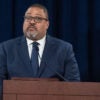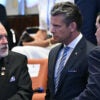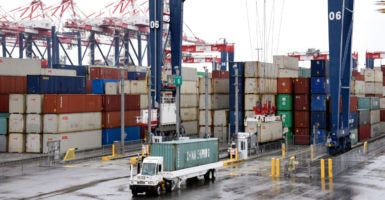In its release of recommendations on how to spur the fastest and most complete rebound from the coronavirus pandemic, The Heritage Foundation’s National Coronavirus Recovery Commission emphasized the importance of economic freedom and the free-market system:
In all of history, there has been no better model than that of free markets in lifting people out of poverty and into better, healthier standards of living.
America must leverage its natural strengths of freedom and free enterprise to reinvigorate economic activity at home and abroad.
The U.S. should intentionally be proactive in promoting “free trade” internationally. Protectionist barriers should be reduced, with the caveats that trade should be economically fair over time, should protect intellectual property, and should be inherently safe.
As Heritage’s Index of Economic Freedom has shown, advancements in economic freedom empower people, unleash powerful forces of choice and opportunity, and nourish other liberties. By providing more fertile ground for effective and democratic governance, economic freedom ultimately nurtures political reform as well.
In the midst of what is now both a health crisis and an economic crisis, the COVID-19-infected world needs to be remobilized to uphold the basic principles of economic freedom and the free-market system: the rule of law, limited government, regulatory efficiency, and market openness.
To protect and advance American interests in this difficult time, the U.S. should do all it can to strengthen and broaden support for the free-market system by forging coalitions with nations that share the principles of economic freedom.
The world economy needs freedom to boost recovery, not authoritarian policies that undermine liberty and other democratic values.
As a Washington Post op-ed recently pointed out:
Some commentators are arguing that China’s coronavirus response attests to the superiority of its authoritarian brand of governance and crisis management. In reality, it turns out that democracies are better suited to protect public health—at least, when they take advantage of their inherent strengths.
… Our citizens live better lives because they are promised dignity and entrusted with truth. Our values are not what make us vulnerable; they are what make us strong.
Indeed, countries with higher degrees of freedom are more resilient in times of calamity because they capitalize more fully on the capacity of their free-market democracies to reinforce human ingenuity and empowerment.
The Heritage Foundation has long advocated the formation of freedom-based alliances. For example, in his book “Liberty’s Best Hope: American Leadership for the 21st Century,” Heritage Foundation Executive Vice President Kim Holmes highlighted the need to build coalitions of countries that are committed to economic freedom.
He has suggested common alliances of liberty, such as a “Global Economic Freedom Forum” and a “Liberty Forum for Human Rights.”
Whatever it’s called, what’s important is the idea that the freedom-loving peoples of the world must come together to defend their freedoms and their way of life in a time of crisis. U.S. leadership will be vital to that process.






























